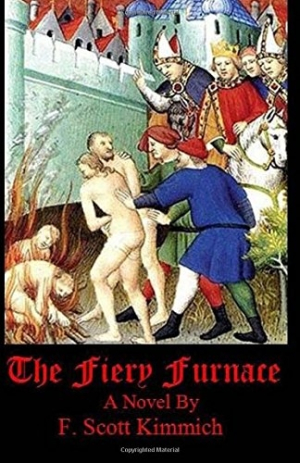The Fiery Furnace
The Fiery Furnace is a well-written, thoroughly entertaining novel of Europe in the thirteenth century.
In F. Scott Kimmich’s second novel in the Ordeal By Fire trilogy, a fast-paced historical realism accurately captures life in the thirteenth century. Following the escapades and lives of several characters—who intertwine in various political and personal ways—The Fiery Furnace is able to present a vast picture of medieval Europe and its operations, particularly those having to do with the heretical dogma of the time, the dissolution of faith that was occurring at the hands of the Roman Church, and the clash between the powerful Plantagenet and Capet dynasties (what is now England and France).
Much of the novel follows the circumstances of one Olivier de Mazan, a “Good Man, or perfect, in the Church of the Friends of God.” Olivier becomes a subject and target for secular authorities, or “the Preaching Friars [who] were well known for turning over Good Men and Women to the secular authorities for immolation.” In many ways, Olivier is a character that is able to unfasten some the novel’s larger thematic subjects.
At its heart, The Fiery Furnace underscores the many injustices that arose in the wake of a polarized medieval Europe, particularly when it came to religion and the many dynasties it held up. Part of this injustice has to do with prejudice. In an especially poignant exchange of dialogue, the character of Odon speaks with his uncle on the subject:
“But just bethink how much worse it would be without the Church,” Odon said, frowning in anguish. Still smiling, Gérard shook his head. “My dear young man, look around you. Do you think we are wicked? Is your mother some foul beast? Just consider all the Good Folk you’ve ever known. Are they less reliable, less honest than your coreligionists? Are we what you call immoral?” “Of course not,” Odon said.
One of the most impressive aspects of Kimmich’s historical fiction is his loyalty to this setting and his representation of it. As he explains in the “Historical and Theological Background” section of the novel, “Most of the characters in this novel once lived and drew breath. … By putting words in their mouths, the author follows the tradition of the 13th century authors of the Cansó de la Crozada (Song of the Crusade).” Kimmich does recommend reading this section first if readers are unfamiliar with thirteenth-century politics and culture. In terms of its readability and historical figures, however, The Fiery Furnace is a well-written, thoroughly entertaining novel.
Reviewed by
Kenny Jakubas
Disclosure: This article is not an endorsement, but a review. The publisher of this book provided free copies of the book and paid a small fee to have their book reviewed by a professional reviewer. Foreword Reviews and Clarion Reviews make no guarantee that the publisher will receive a positive review. Foreword Magazine, Inc. is disclosing this in accordance with the Federal Trade Commission’s 16 CFR, Part 255.

